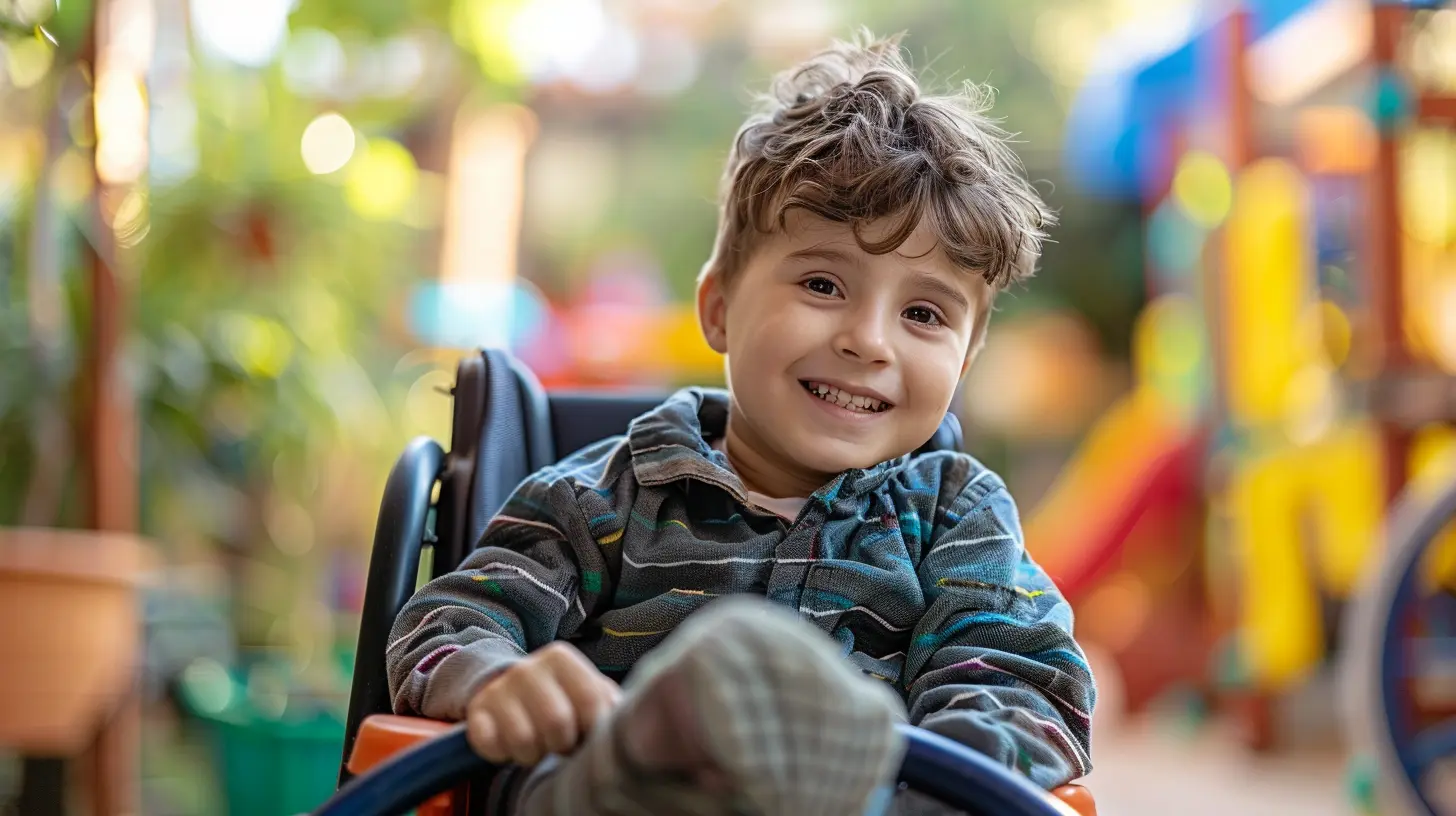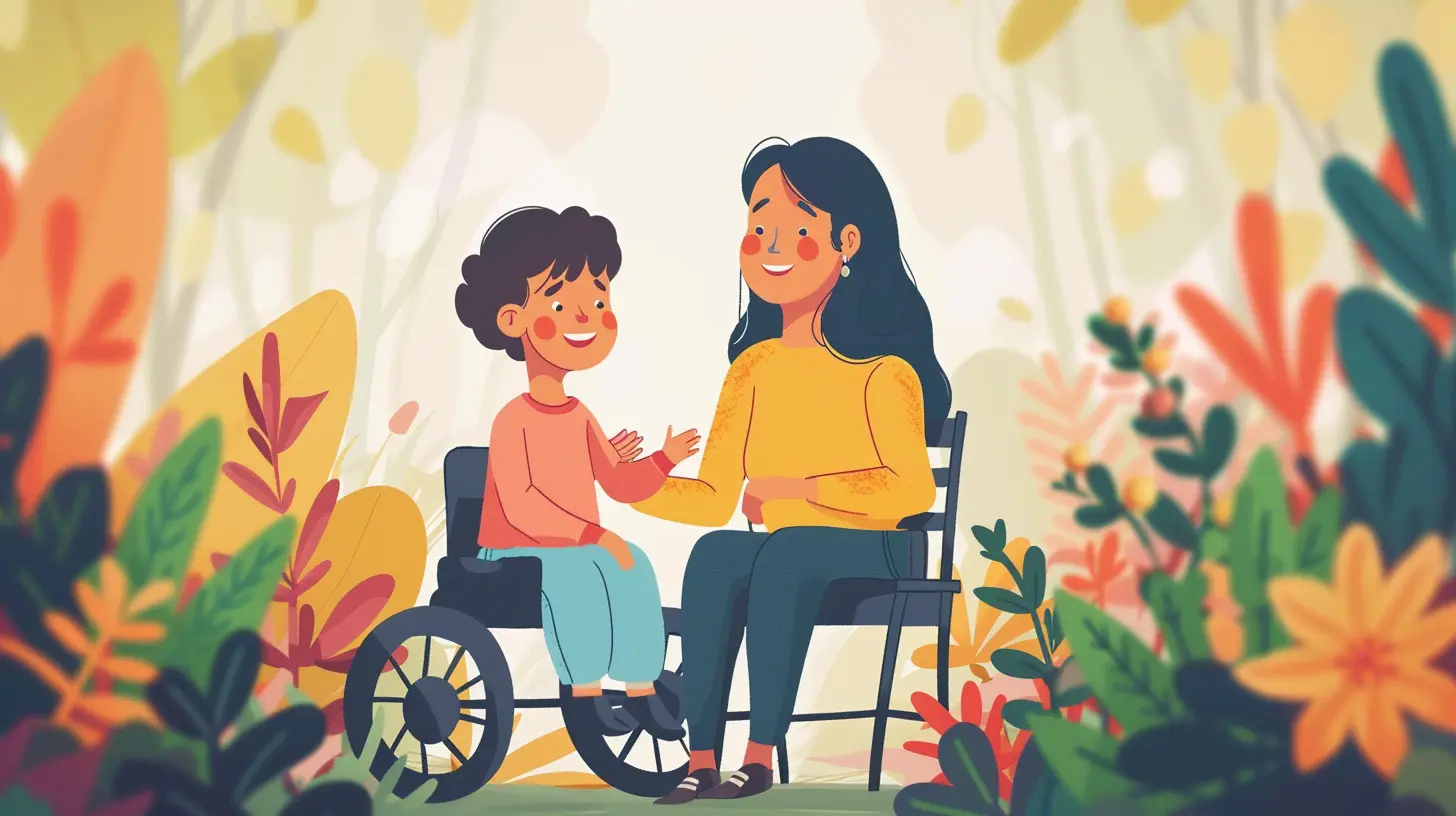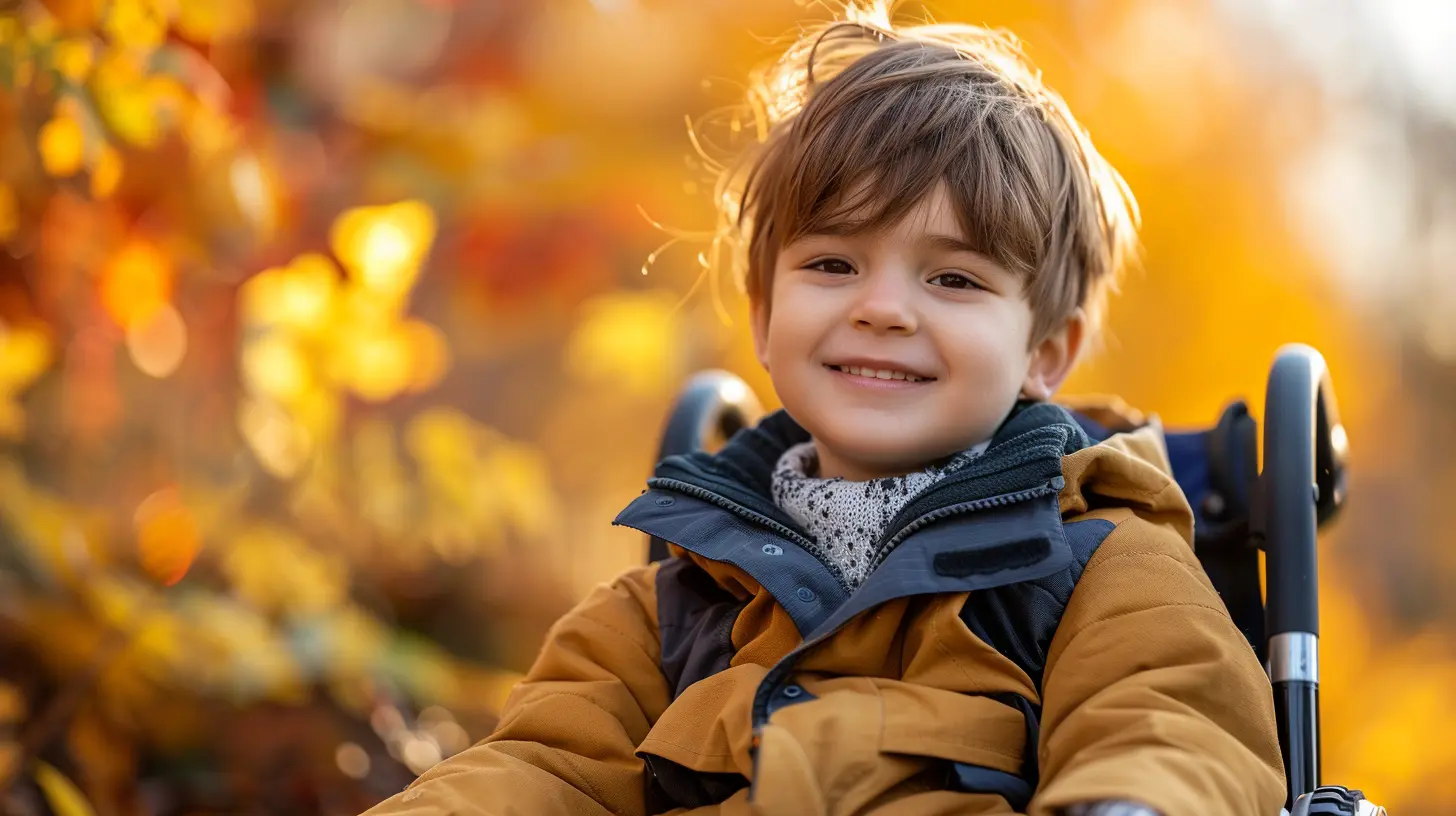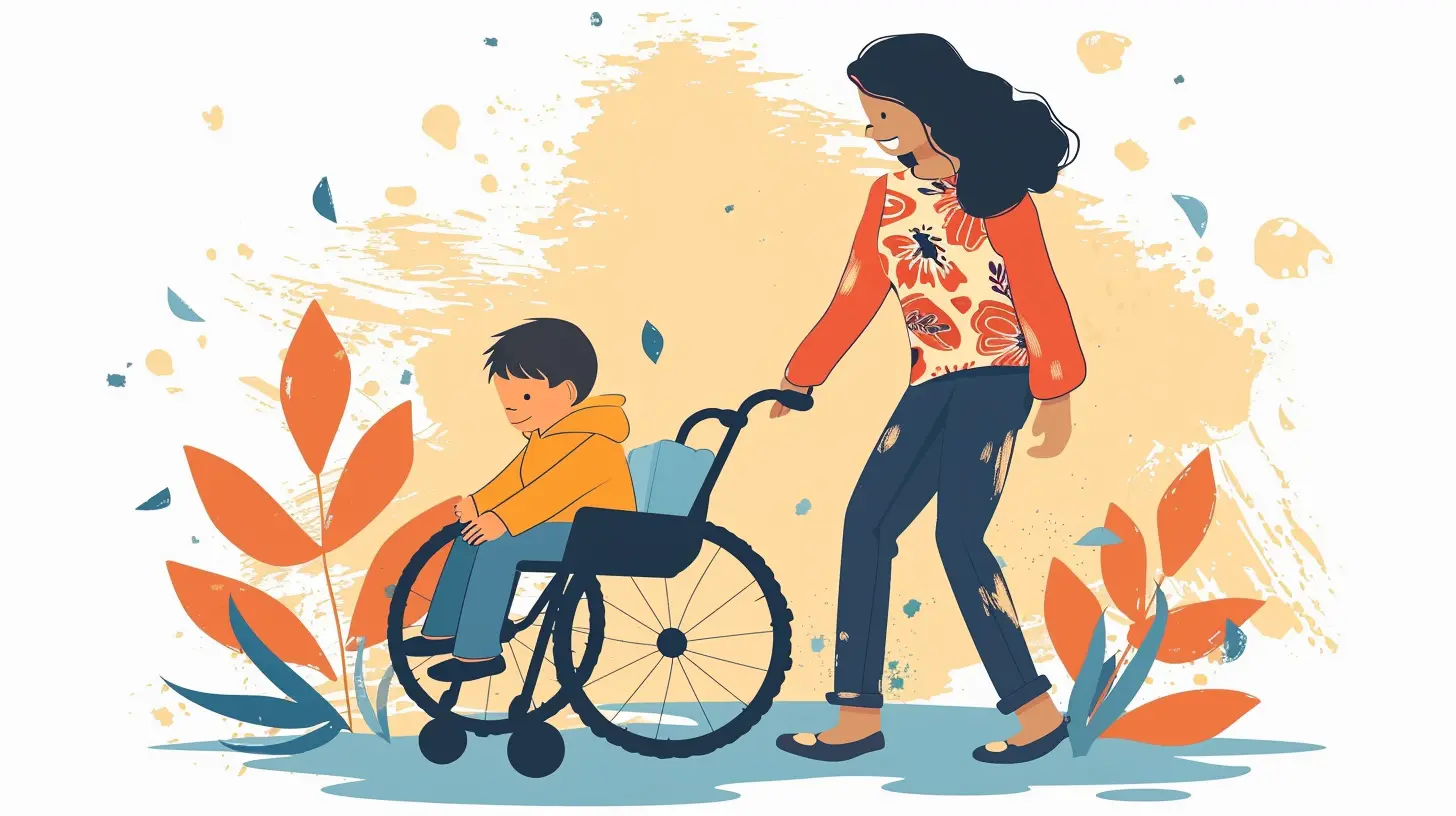How to Potty Train a Child with Special Needs
9 May 2025
Potty training is a significant milestone for any child, but when your little one has special needs, the process can feel even more challenging. As a parent, you want to set them up for success while also ensuring they feel safe and supported. The good news? With patience, consistency, and the right approach, potty training a child with special needs is absolutely possible.
Each child is unique, and the key is to find strategies that align with their learning style, developmental stage, and sensory preferences. In this guide, we'll walk through practical steps, challenges you might face, and tips to help make the journey smoother.

Understanding Your Child's Readiness
Before diving into potty training, it's essential to assess whether your child is ready. For children with special needs, readiness signs may appear later than for neurotypical children, and that's completely okay. Here are some signs that your child might be ready to start:- Increased awareness – They recognize when their diaper is wet or soiled.
- Stays dry for longer periods – If they can stay dry for at least two hours, it's a good sign.
- Shows discomfort – Some kids dislike the feeling of a dirty diaper.
- Expresses interest – They might watch other family members use the toilet or show curiosity.
- Can follow simple instructions – If they can understand basic commands like "sit down" or "pull up your pants," it can make training easier.
If your child isn’t showing these signs yet, don’t worry. Give them more time, and gently introduce the idea of potty training through books, videos, and conversations.

Preparing for Potty Training
1. Choose the Right Equipment
Children with special needs may require adaptive potty training tools to make the process easier. Consider:- A potty chair or seat reducer – Some kids feel more secure on a smaller potty rather than a large toilet.
- A visual schedule – Using pictures or symbols to illustrate each step of the potty routine can help children who process information visually.
- A sensory-friendly environment – If your child has sensory issues, consider making the bathroom as comfortable as possible (e.g., warm lighting, soft toilet seat covers, or even playing calming music).
2. Set a Routine
Kids thrive on structure, and having a predictable routine can work wonders. Try taking them to the bathroom at regular intervals—after meals, before bedtime, or when they wake up. Consistency helps build a habit.3. Use Communication Tools
If your child is nonverbal or has difficulty expressing themselves, consider using:- Sign language – Simple signs for “bathroom” or “potty” can be a game changer.
- Picture exchange communication system (PECS) – Visual cues can help your child indicate when they need to go.
- Apps – Some potty training apps are designed specifically for children with communication challenges.

Potty Training Strategies for Children with Special Needs
1. Start Small and Build Confidence
Instead of expecting your child to master everything at once, break the process into tiny steps. Begin with sitting on the potty fully clothed, then progress to sitting without a diaper, and so on. Celebrate each small victory!2. Use Reinforcement and Rewards
Positive reinforcement works wonders. Praise them enthusiastically when they sit on the potty, and consider using small rewards like stickers, a favorite snack, or extra playtime. Make sure the reward is something they genuinely enjoy!3. Stay Consistent with Language
Use the same words every time: “Let’s go potty” or “Time for the toilet.” Clear and consistent language helps reduce confusion.4. Watch for Cues
Many children with special needs may not verbally tell you when they need to go. Instead, they might show physical signs like fidgeting, holding their belly, or hiding in a corner. Observing their unique cues can help you prompt them at the right time.5. Address Sensory Sensitivities
Some children struggle with the sounds, textures, or sensations of using the toilet. If the flushing sound is overwhelming, let them flush later. If they dislike the cold toilet seat, use a padded cover. Understanding and accommodating their sensory preferences can minimize anxiety.6. Stay Patient and Flexible
Progress might be slow, and that’s completely fine. If your child resists or has setbacks, take a break and try again later. Potty training is a process, not a race.
Common Challenges and How to Overcome Them
Regression
It’s common for potty-trained kids—especially those with special needs—to have setbacks. Stress, illness, or changes in routine can contribute to regression. If this happens, don’t panic. Reinforce the potty routine, stay patient, and offer extra encouragement.Fear of the Toilet
Some children are frightened of the toilet due to its size, flushing sounds, or the sensation of sitting on it. If your child is hesitant, start by letting them sit with their clothes on, then gradually transition to regular potty use.Accidents
Accidents will happen—it’s part of the learning process! Avoid punishment or frustration. Instead, reassure your child, help them clean up, and gently remind them about the potty.Resistance to Change
Many children with special needs struggle with transitions. If your child refuses to use the toilet, try making it a fun and positive experience. Use favorite toys, play potty-related songs, or read books about potty training.When to Seek Professional Help
If you’ve been trying for several months with little or no progress, it may be time to consult a doctor, occupational therapist, or behavior specialist. They can provide tailored strategies based on your child’s specific needs.
Final Thoughts
Potty training a child with special needs requires patience, understanding, and a bit of creativity. While it may take longer than expected, every small step forward is a victory. Remember, no two children are the same—what works for one may not work for another.Celebrate progress, stay flexible, and be kind to yourself. You’re doing an amazing job! With consistency and encouragement, your child will get there in their own time.
all images in this post were generated using AI tools
Category:
Potty TrainingAuthor:

Maya Underwood
Discussion
rate this article
4 comments
Tobias Becker
Potty training a child with special needs requires patience, understanding, and flexibility. Celebrate small victories, maintain consistent routines, and always prioritize your child's comfort. Embrace the journey, knowing that each step forward is progress worthy of celebration.
May 21, 2025 at 4:23 AM

Maya Underwood
Thank you for highlighting the importance of patience and flexibility in this process! Celebrating small victories truly makes a difference in encouraging progress.
Viva McKinstry
Thank you for sharing such valuable insights! Potty training can be challenging, especially for children with special needs. Your tips offer hope and encouragement, reminding parents they’re not alone on this journey.
May 13, 2025 at 4:30 PM

Maya Underwood
Thank you for your kind words! I'm glad the tips resonate and provide support to parents on this journey. You're not alone!
Carson Turner
Potty training children with special needs requires patience, consistency, and tailored strategies for successful outcomes.
May 12, 2025 at 4:21 PM

Maya Underwood
Absolutely! Every child is unique, and adapting our approach with patience and consistency is key to successful potty training.
Soraya McQuiston
Potty training can feel like an uphill climb, but remember, every step counts! Celebrate the small victories, be patient, and trust your instincts. You’re doing an amazing job—keep shining and have fun with the process!
May 11, 2025 at 2:39 AM

Maya Underwood
Thank you for your encouraging words! Every small victory truly matters in this journey. Your support means a lot!



